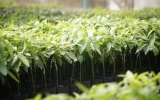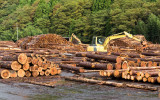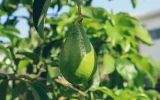How Often Do Avocado Trees Produce Fruit?
Avocado trees are known to be slow-growing, and it can take several years for a tree to start producing fruit. Additionally, the frequency of fruit production can vary depending on several factors, including the age of the tree, the variety of avocados, and the growing conditions. In this article, we'll help you find out how frequently avocados produce fruit and what factors affect fruit yield.
Avocado trees typically start producing fruit after they are around three to four years old. Once they begin bearing fruit, they can produce avocados annually, with the exact frequency depending on factors such as the tree's health, growing conditions, and the specific avocado variety.
Many factors can affect avocado fruit yield, including stress, pollination, fertilization, water schedule, nutrients, and light. As you go through this article, you'll find out more details on how these factors affect your yield from avocado trees.
Harvesting practices should be considered when developing plans for how to start an avocado farm from scratch.
Summary
- The variety of avocados significantly determines the frequency of fruit production, with different varieties, such as Hass, Fuerte, and Reed, exhibiting varying fruiting patterns annually, biennially, and irregularly, respectively.
- Young avocado trees, under five years old, are focused on establishing a strong root system and healthy growth, resulting in limited to no fruit production during this early stage.
- Avocado trees become more likely to produce fruit as they mature, usually around 5–13 years old, and are more likely to produce fruit regularly and with greater consistency once they reach full maturity, typically around 13–15 years old.
- Avocado trees require specific climate conditions, well-draining soil, and adequate irrigation to thrive and produce high-quality fruit.
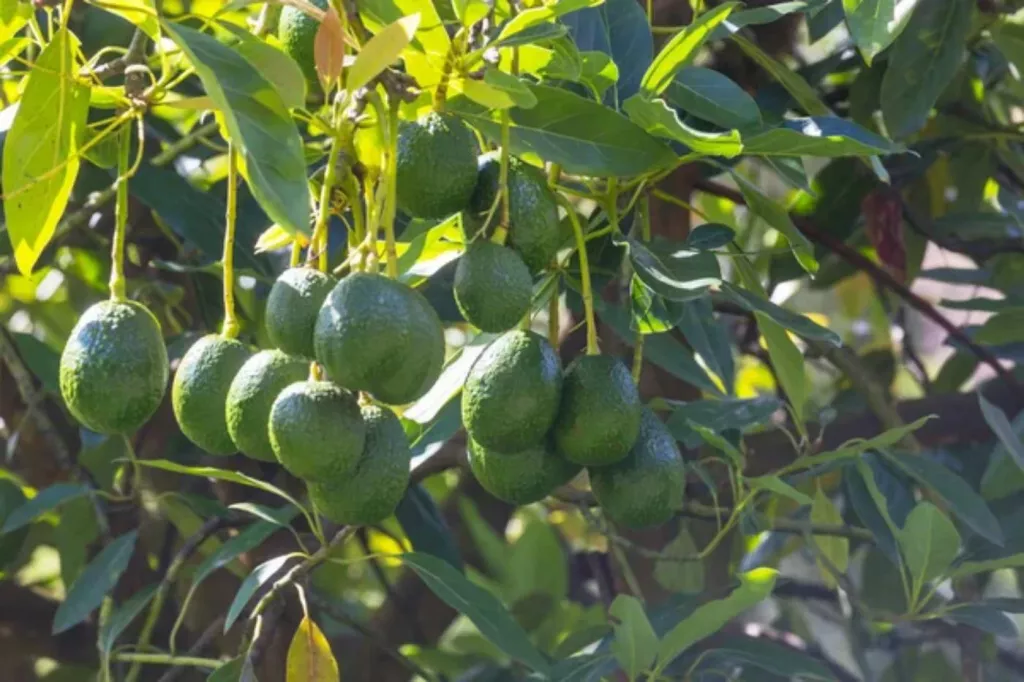
On this page:
Frequency of Avocado Fruit Production
Avocado trees typically start producing fruit when they are 3-4 years old, but it can take up to 10 years for them to reach their full fruit production potential.
Avocado trees bear fruit on new growth, which means that they need to be pruned regularly to encourage new growth. Once the tree starts producing fruit, it will continue to do so every year, as long as it is healthy and well-maintained.
The frequency of fruit production can vary depending on several factors, including the age of the tree, the variety of avocados, and the growing conditions.
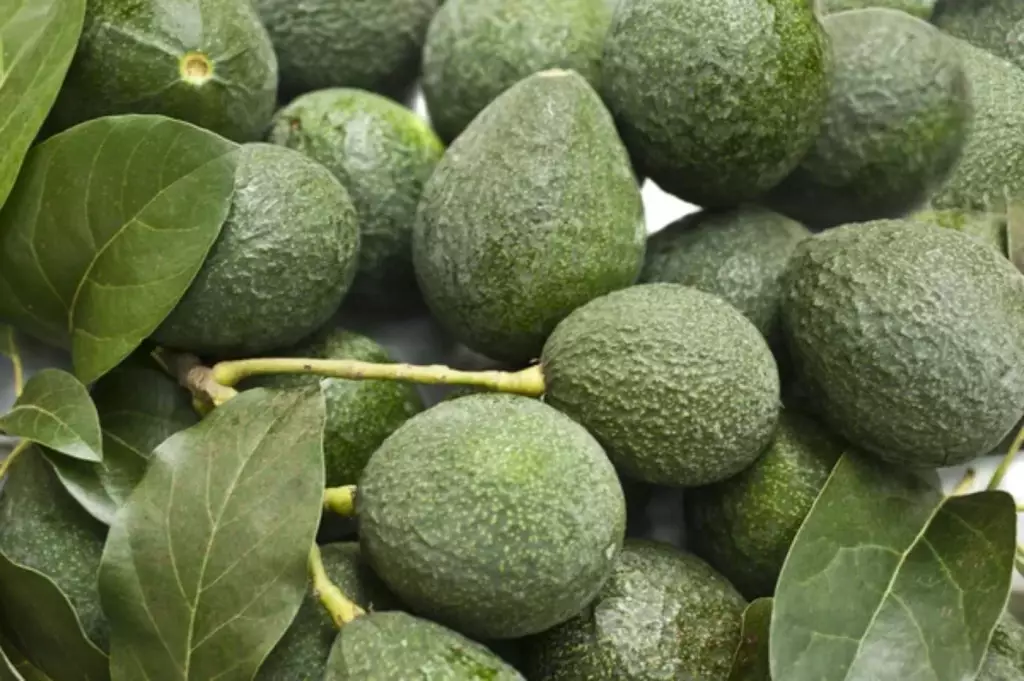
Different avocado varieties have different yield patterns, which can affect how often they produce fruit. For example, Hass avocado trees are known for their abundant fruit production, while Fuerte avocado trees are known for their biennial bearing. They also have different densities required per hectare.
Now when it comes to yield, many factors can affect avocado fruit yield, including stress, pollination, fertilization, water schedule, nutrients, and light. Avocado trees can also be affected by biennial fruiting, which means that they produce fruit every other year instead of every year.
The Variety of Avocados Determines the Frequency of Fruit Production
There are various types of avocados, including the popular Hass, Fuerte, Reed, and many others. Each variety has its unique characteristics, including differences in flowering and fruiting patterns.
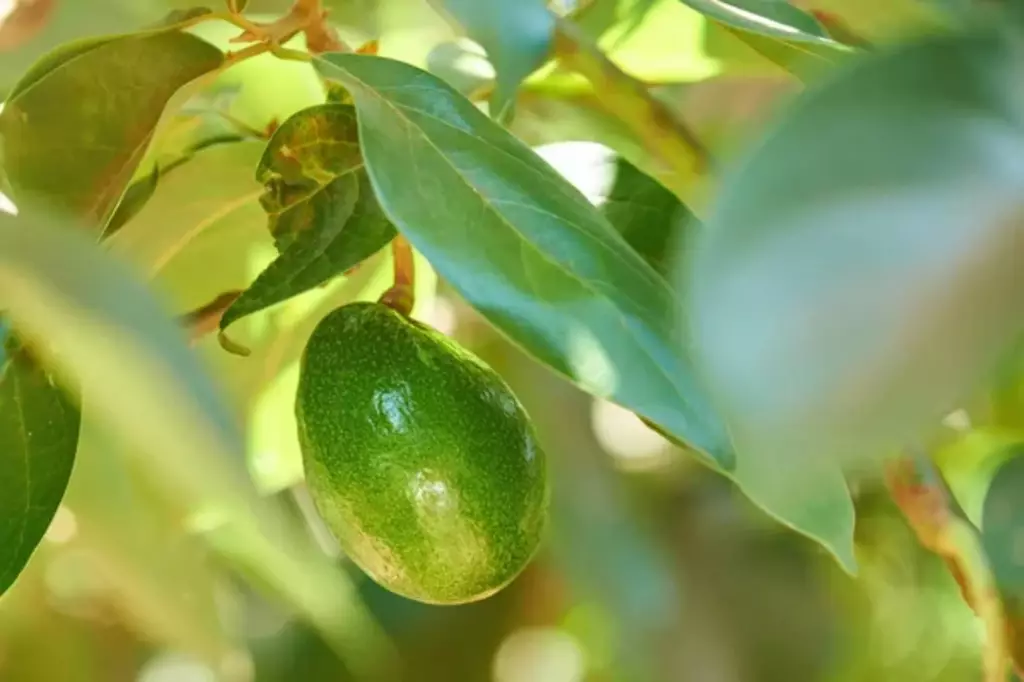
Some varieties may produce fruit annually, while others may have biennial or irregular fruiting habits. The table below shows differences in their fruit frequency production:
| Avocado Variety | Frequency of Fruit Production |
|---|---|
| Hass | Annually |
| Fuerte | Biennial |
| Reed | Irregular |
Hass avocados produce fruits annually
The Hass avocado tree typically bears fruit once a year, with the harvesting season generally occurring between spring and summer.
The fruit matures on the tree and is usually ready for picking when it reaches its desired size and changes color from green to a dark purplish-black. The annual fruit-bearing habit of the Hass avocado makes it a reliable and consistent source of delicious avocados for consumers and farmers alike.
Fuerte avocados have biennial-bearing habit
The Fuerte avocado tree is known for its biennial fruit-bearing habit, which means it produces a significant crop of avocados every other year.
This pattern is a natural occurrence in some avocado varieties, including the Fuerte, and is influenced by various factors such as environmental conditions, tree health, and fruit load from the previous year.
During the "on" year, the tree produces a larger quantity of fruit, while the "off" year typically yields a smaller crop. This biennial fruiting behavior is important for growers to consider when managing their avocado orchards and planning for consistent harvests.
Reed avocados bear fruit irregularly
The irregular fruit-bearing habit of Reed avocados is a natural phenomenon that occurs due to various factors such as environmental conditions, tree age, and genetic predisposition.
Reed avocados, like many other fruit trees, can exhibit irregular fruit-bearing patterns, with some years yielding a bountiful harvest while others may have significantly fewer fruits.
This irregularity in fruit production can be attributed to several factors, including climatic variations, such as temperature and rainfall patterns, which can impact the tree's flowering and fruit-setting processes.
Additionally, the age of the avocado tree can also influence its fruit-bearing behavior, with younger trees typically being less consistent in their fruit production compared to mature trees.
Furthermore, genetic factors play a role in the irregular fruit-bearing habit of Reed avocados, as certain cultivars may inherently have a tendency towards alternate or sporadic fruiting patterns.
While this irregularity may pose challenges for commercial avocado growers, it is a natural occurrence that is managed through proper orchard management practices and crop monitoring.
The Age of Avocado Trees Impacts the Frequency of Fruit Production
| Age of Avocado Trees | Fruit Production Frequency |
|---|---|
| Under 5 years | Limited to no fruit production |
| 5-13 years | Variable fruit production, influenced by environmental factors and tree health |
| 13-15+ years | More regular and consistent fruit production, indicative of mature trees |
Generally, avocado trees do not produce fruit until they reach a certain level of maturity, which typically takes several years.
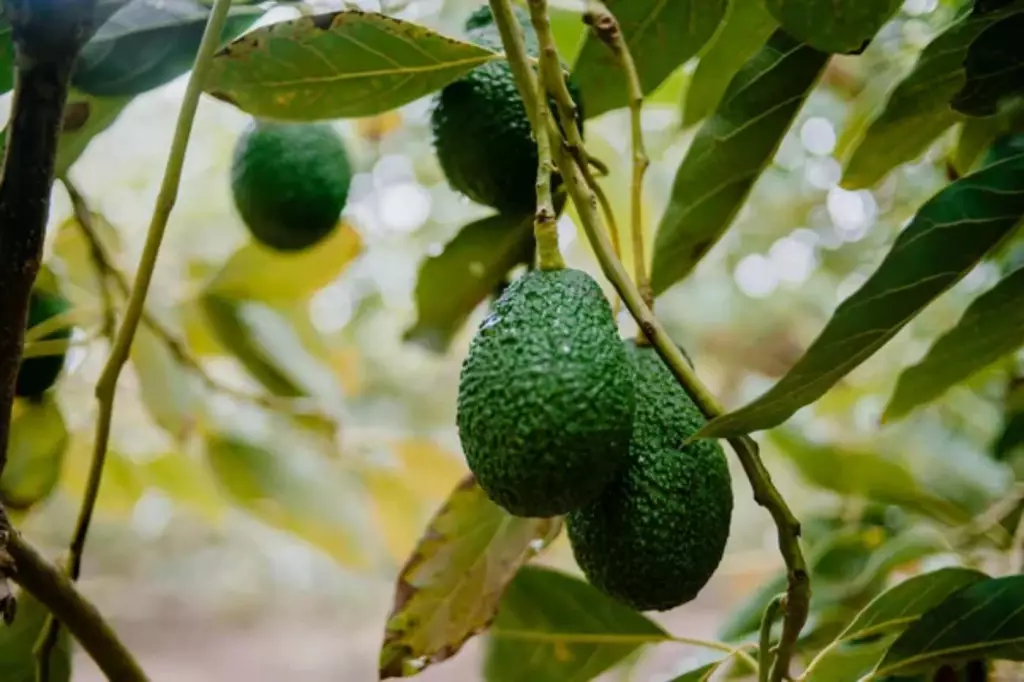
Young avocado trees, typically those under five years old, are still in the early stages of development and are focused on establishing a strong root system and healthy growth. As a result, they may not bear fruit or produce a very limited amount of fruit during this early stage of growth.
As avocado trees mature, usually around 5-13 years old, they enter a phase where they are more likely to produce fruit. This is the stage where the tree has developed sufficiently to support the energy-intensive process of fruit production.
However, the frequency of fruit production during this phase can still vary depending on factors such as environmental conditions, tree health, and the specific avocado variety.
Once avocado trees reach full maturity, typically around 13-15 years old, they are more likely to produce fruit regularly and with greater consistency.
Mature avocado trees have established a strong root system, sturdy trunk, and ample foliage, all of which contribute to increased fruit production.
Growing Conditions That Affect Avocado Fruit Production
The production of avocados is significantly influenced by various growing conditions such as climate, soil quality, and irrigation:
Climate requirement for avocados
Avocado trees have specific climate requirements to thrive and produce high-quality fruit. They are best suited to subtropical and tropical climates where the conditions are favorable for their growth.
They are particularly sensitive to frost, and exposure to low temperatures can have a detrimental impact on both the tree and its fruit production.
Avocado trees thrive in temperatures that range between 60° to 85° Fahrenheit (16° to 29° Celsius). Extreme cold can cause damage to the tree, affecting its overall health and fruit yield. Therefore, regions with mild, frost-free winters and warm summers are most suitable for avocado cultivation.
In addition to temperature, they also require moderate to high humidity to flourish. Dry and arid conditions can stress the trees, leading to reduced fruit production and overall health. Therefore, regions with relatively high humidity levels, especially during the growing season, are preferred for avocado cultivation.
Furthermore, they require full sun exposure for optimal growth and fruit production. Adequate sunlight ensures that the trees can photosynthesize effectively, promoting healthy foliage and fruit-bearing.
Soil quality plays a crucial role in the successful cultivation of avocado trees
Avocado trees thrive in well-draining soil. This is primarily because poorly draining soil can lead to waterlogged roots, which can have detrimental effects on the overall health of the trees.
When the roots of avocado trees are waterlogged, it creates an environment that is conducive to root rot and other issues. These conditions can severely hamper the tree's ability to uptake nutrients and water, leading to stunted growth and reduced fruit production.
In addition to root rot, waterlogged soil can also result in a lack of oxygen at the root zone, further compounding the stress on the trees. This can ultimately lead to a decline in the overall health and vigor of the avocado trees, impacting their ability to produce high-quality fruit.
To ensure optimal growth and fruit yield, it is imperative to provide avocado trees with soil that possesses excellent drainage properties. This can be achieved through various means, such as incorporating organic matter to improve soil structure, creating raised beds to enhance drainage, or selecting appropriate planting sites with naturally well-draining soil.
Adequate irrigation is a key factor in promoting healthy fruit production in avocado trees
Avocado trees require consistent and appropriate watering to support their growth and the development of high-quality fruit. Insufficient water supply can lead to stress in the tree, resulting in reduced fruit yield and potentially causing the tree to skip a fruiting cycle.
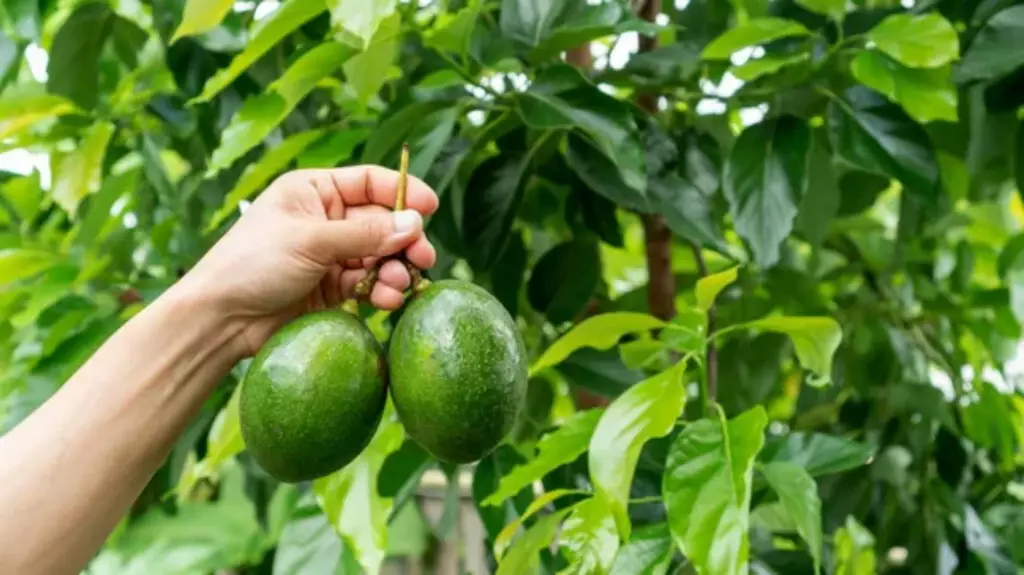
Understanding the typical bearing patterns and the fruit production cycle of avocado trees, can help farmers plan appropriately.
On the contrary, overwatering may also lead to root rot and other water-related issues that can negatively impact fruit production. Therefore, finding the right balance in irrigation is essential for avocado trees.
Monitoring the soil moisture levels and adjusting the irrigation schedule accordingly can help prevent both under and overwatering, ensuring optimal conditions for fruit production.
Avocado trees benefit from a well-planned watering schedule, especially during critical growth stages and fruit development. Providing water at the right time can contribute to the tree's overall health and the production of high-quality fruit.
Drip irrigation or soaker hoses are often preferred as they deliver water directly to the root zone, minimizing water loss through evaporation and ensuring efficient use of water resources.
You can learn more about the optimal conditions required for planting avocado trees when you read this article.
